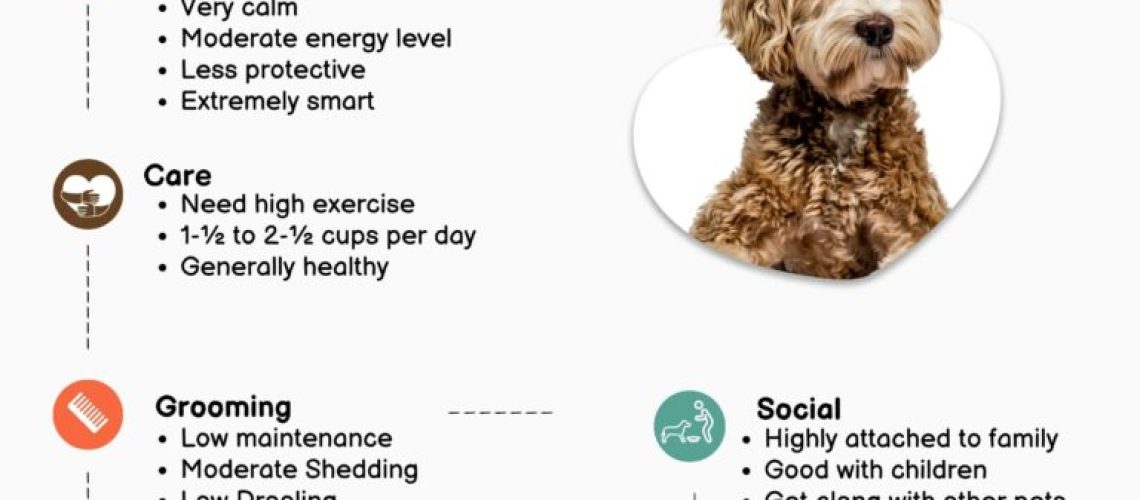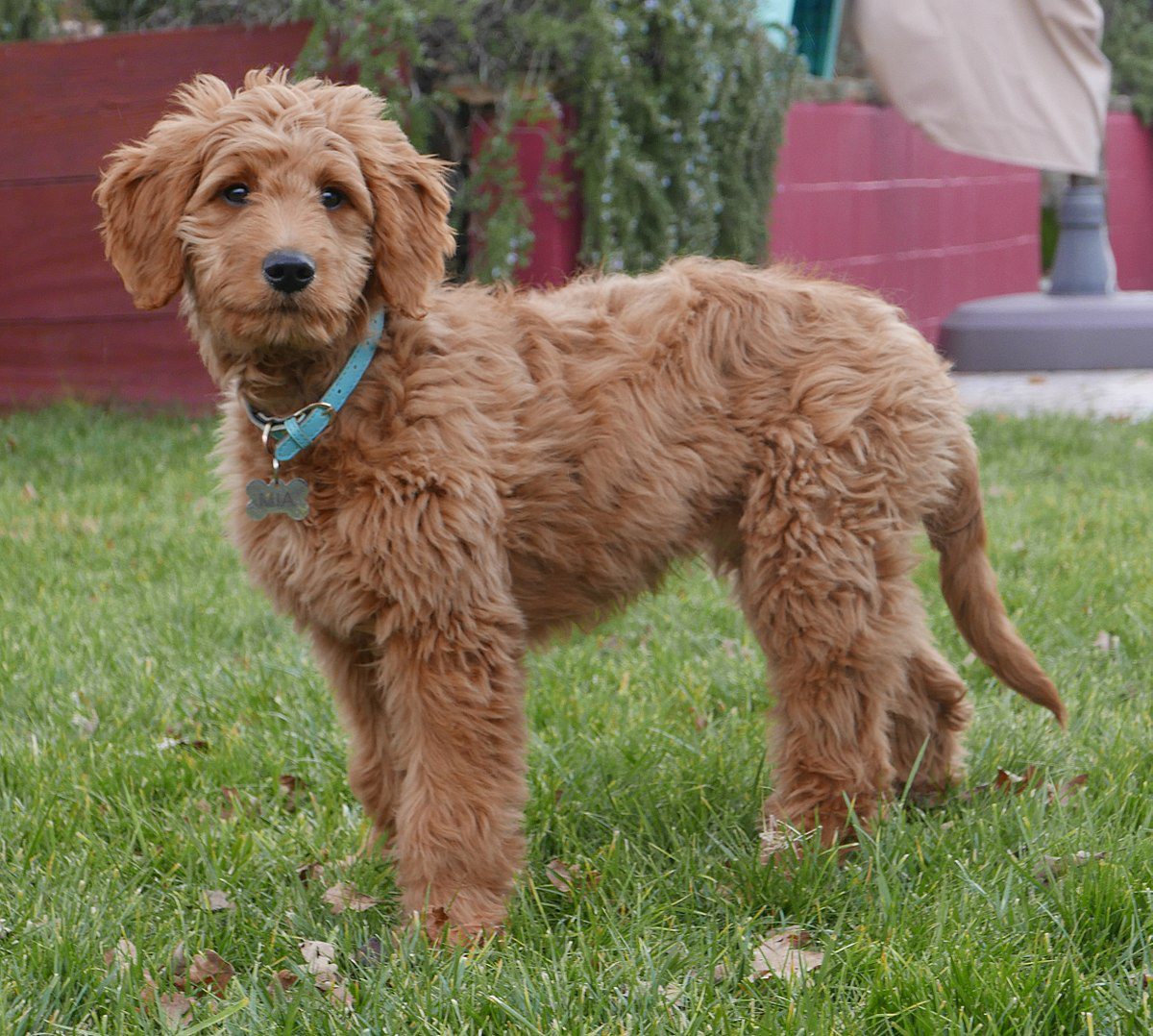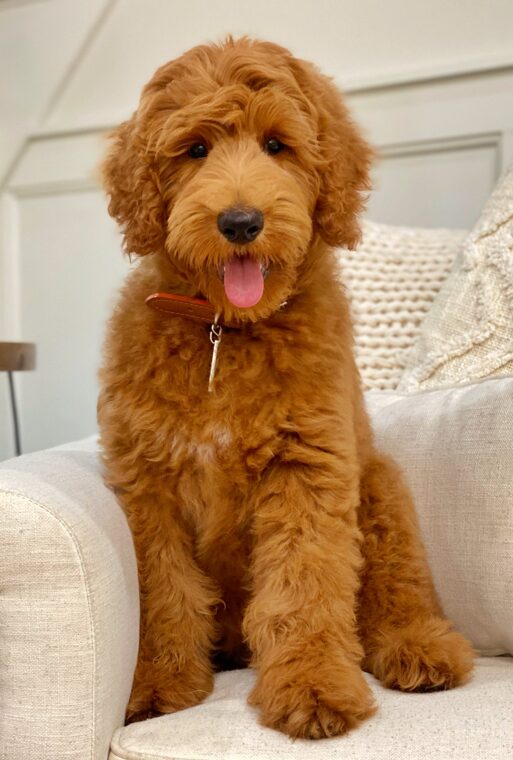Key Takeaways:
- Goldendoodles are a crossbreed between a Golden Retriever and a Poodle.
- They are known for their hypoallergenic coat, making them a great choice for people with allergies.
- Goldendoodles come in various sizes, ranging from miniature to standard, depending on the size of the Poodle parent.
- These dogs are highly intelligent and trainable, making them suitable for various activities such as therapy work or agility training.
- Goldendoodles have friendly and social personalities, getting along well with children and other pets.
Are you ready to embark on a journey into the fascinating world of Goldendoodles? These adorable and intelligent creatures have captured the hearts of dog lovers everywhere. By exploring 12 intriguing facts about Goldendoodles, you'll gain valuable insights into their unique characteristics and understand why they make such wonderful companions. Whether you're considering adding a Goldendoodle to your family or simply curious about these delightful dogs, this exploration will provide you with a deeper appreciation for their charm and appeal. So, let's dive in and uncover the secrets behind the beloved Goldendoodle breed!
What is a Goldendoodle and how did it come to be?
The Origin of the Goldendoodle Breed
The Goldendoodle is a crossbreed dog that is a mix between a Golden Retriever and a Poodle. It was first bred in the 1990s with the aim of creating a dog that combined the intelligence and low-shedding coat of the Poodle with the friendly and outgoing nature of the Golden Retriever. The breed quickly gained popularity due to its desirable traits.
A Hybrid Dog with Unique Characteristics
Goldendoodles have become known for their curly or wavy coats, which can vary in color from cream to dark brown. They have adorable floppy ears and expressive eyes, giving them an endearing appearance. Their size can also vary depending on the size of the Poodle parent, ranging from small to large.
One of the reasons why Goldendoodles are so popular is because they are generally hypoallergenic, meaning they are less likely to cause allergies in people who are sensitive to pet dander. This makes them a great choice for families with allergies or individuals who want a dog but don't want to deal with excessive shedding.
Understanding the Appearance of a Goldendoodle
Variations in Coat Types
Goldendoodles can have different types of coats, which may require varying levels of grooming. Some have more Poodle-like coats that are curly or tightly waved, while others have coats that resemble those of Golden Retrievers but with less shedding. The type of coat your Goldendoodle has will affect how often you need to brush them and whether they require professional grooming.
Different Sizes within the Breed
Goldendoodles come in different sizes, which can be categorized as standard, medium, and mini. Standard Goldendoodles are the largest and can weigh up to 70 pounds or more. Medium Goldendoodles typically weigh between 30 to 45 pounds, while mini Goldendoodles are the smallest and usually weigh between 15 to 30 pounds.
When choosing a Goldendoodle, it's important to consider the size that will best fit your lifestyle and living situation. Smaller Goldendoodles may be more suitable for apartments or homes with limited space, while larger ones may require more room to roam and play.
Comparing the Temperament of a Goldendoodle to Other Dog Breeds
A Friendly and Social Nature
Goldendoodles are known for their friendly and social personalities. They are often described as being affectionate, gentle, and good with children, making them great family pets. Their Golden Retriever heritage contributes to their love for people and desire to please their owners.
Key Characteristics:
- Friendly
- Affectionate
- Gentle
- Social
- Good with children
An Intelligent Breed That Loves to Learn
Both Poodles and Golden Retrievers are highly intelligent breeds, so it's no surprise that Goldendoodles inherit this trait as well. They are quick learners and enjoy participating in training sessions or learning new tricks. This intelligence also makes them adaptable dogs that can thrive in various environments.
Are Goldendoodles Hypoallergenic and Why Does It Matter?
Hypoallergenic Qualities of Goldendoodles
Goldendoodles are often considered hypoallergenic because they have inherited the low-shedding coat of their Poodle parent. This means that they produce fewer allergens compared to breeds with heavy shedding coats, making them a better choice for individuals with allergies or asthma.
The Importance of Hypoallergenic Breeds
Hypoallergenic breeds like Goldendoodles can make it possible for people with allergies to enjoy the companionship of a dog without suffering from allergic reactions. Pet dander, which includes dead skin cells and hair, is a common allergen. By choosing a hypoallergenic breed, individuals can reduce their exposure to these allergens and potentially alleviate symptoms such as sneezing, itching, and congestion.
How Big Do Goldendoodles Grow and What Exercise Do They Need?
Growth and Size Expectations
The size of a Goldendoodle can vary depending on the size of the Poodle parent and whether it is a first-generation (F1) or multi-generational (F1B) crossbreed. Standard Goldendoodles typically reach a height of 20 to 24 inches at the shoulder and weigh between 50 to 70 pounds. Medium Goldendoodles are usually around 17 to 21 inches tall and weigh between 30 to 45 pounds. Miniature Goldendoodles stand about 13 to 20 inches in height and weigh between 15 to 30 pounds.
Exercise Needs for Goldendoodles
Goldendoodles are an active breed that requires regular exercise to stay happy and healthy. Daily walks or playtime in a fenced yard can help fulfill their exercise needs. They also enjoy activities such as swimming, running, or playing fetch. Providing mental stimulation through puzzle toys or training sessions can also help keep them mentally engaged.
Common Health Issues in Goldendoodles
Potential Health Concerns
While Goldendoodles are generally healthy dogs, they may be prone to certain inherited health conditions that can affect both Golden Retrievers and Poodles. Some common health issues in Goldendoodles include hip dysplasia, progressive retinal atrophy (PRA), and certain types of cancers. Regular veterinary check-ups and proper care can help prevent and manage these conditions.
Health Testing and Responsible Breeding
To minimize the risk of inherited health problems, it is important to choose a reputable breeder who conducts health testing on their breeding dogs. Health tests can detect potential genetic issues, allowing breeders to make informed decisions when selecting parent dogs for future litters. Responsible breeding practices help ensure that puppies have the best chance of being healthy and free from genetic diseases.
Grooming Needs of a Goldendoodle and Their Trainability
Grooming Requirements
The grooming needs of a Goldendoodle will depend on the type of coat they have. Those with curly or wavy coats may require more frequent brushing to prevent matting, while those with straighter coats may need less maintenance. Regular bathing, nail trimming, and ear cleaning are also essential parts of their grooming routine.
Tips for Grooming:
- Brush curly or wavy coats regularly to prevent matting
- Trim nails regularly to maintain paw health
- Clean ears weekly to prevent infections
- Schedule regular professional grooming appointments if needed
Trainability and Intelligence
Goldendoodles are highly trainable dogs due to their intelligence and desire to please their owners. They respond well to positive reinforcement training methods, such as rewards and praise. Starting training at a young age and being consistent with commands and expectations can help shape them into well-behaved and obedient companions.
It's important to remember that each Goldendoodle is an individual, so some may be more stubborn or independent than others. Patience, consistency, and positive reinforcement are key when training a Goldendoodle.
In conclusion, Goldendoodles are a popular and friendly breed of dog that make great pets. They are a mix between Golden Retrievers and Poodles, and have many positive qualities such as being hypoallergenic and intelligent. If you're looking for a loving and playful companion, the Goldendoodle might be the perfect choice for you.
What are some cool facts about Goldendoodles?
The hybrid breed, known as a "designer breed," was specifically bred to have the desirable traits of both of its parent breeds. Because of their poodle ancestry, they have minimal shedding and are hypoallergenic. Goldendoodles are incredibly friendly and sociable, making them an excellent choice for a family pet.
What makes a Goldendoodle special?
Goldendoodles are becoming increasingly popular not only as household pets but also as highly skilled service dogs. Their intelligence, loyalty, and hypoallergenic fur make them an ideal option for individuals with disabilities or special needs.
Are Goldendoodles smart?
Certainly, goldendoodles are indeed intelligent. If the intelligence of a dog is important to you when selecting a breed, this beautiful and playful creature would make an ideal pet.
How long do Goldendoodles live?
Goldendoodles typically have a lifespan of 10 to 15 years and are generally healthy dogs. However, they may be susceptible to common health issues that are found in both Poodles and Golden Retrievers. While it is not possible to guarantee that your Goldendoodle will be completely free from health problems, it is advisable to obtain your puppy from a trustworthy breeder, according to Jamie Whittenburg, DVM.
What do Goldendoodles like the most?
Goldendoodles enjoy traditional dog activities such as playing fetch, going for walks, and running. They are also known to enjoy water and can be taught to swim. Additionally, they are well-suited for roles as guide dogs, service dogs, and therapy dogs. With regular exercise, most Goldendoodles show minimal aggression and are highly trainable.
How do Goldendoodles show they love you?
If your Goldendoodle frequently cuddles with you on the couch or tries to get on your lap, it is a clear indication that they have a strong affection for you. Their need for physical closeness is their way of expressing that you are an integral part of their life.

















